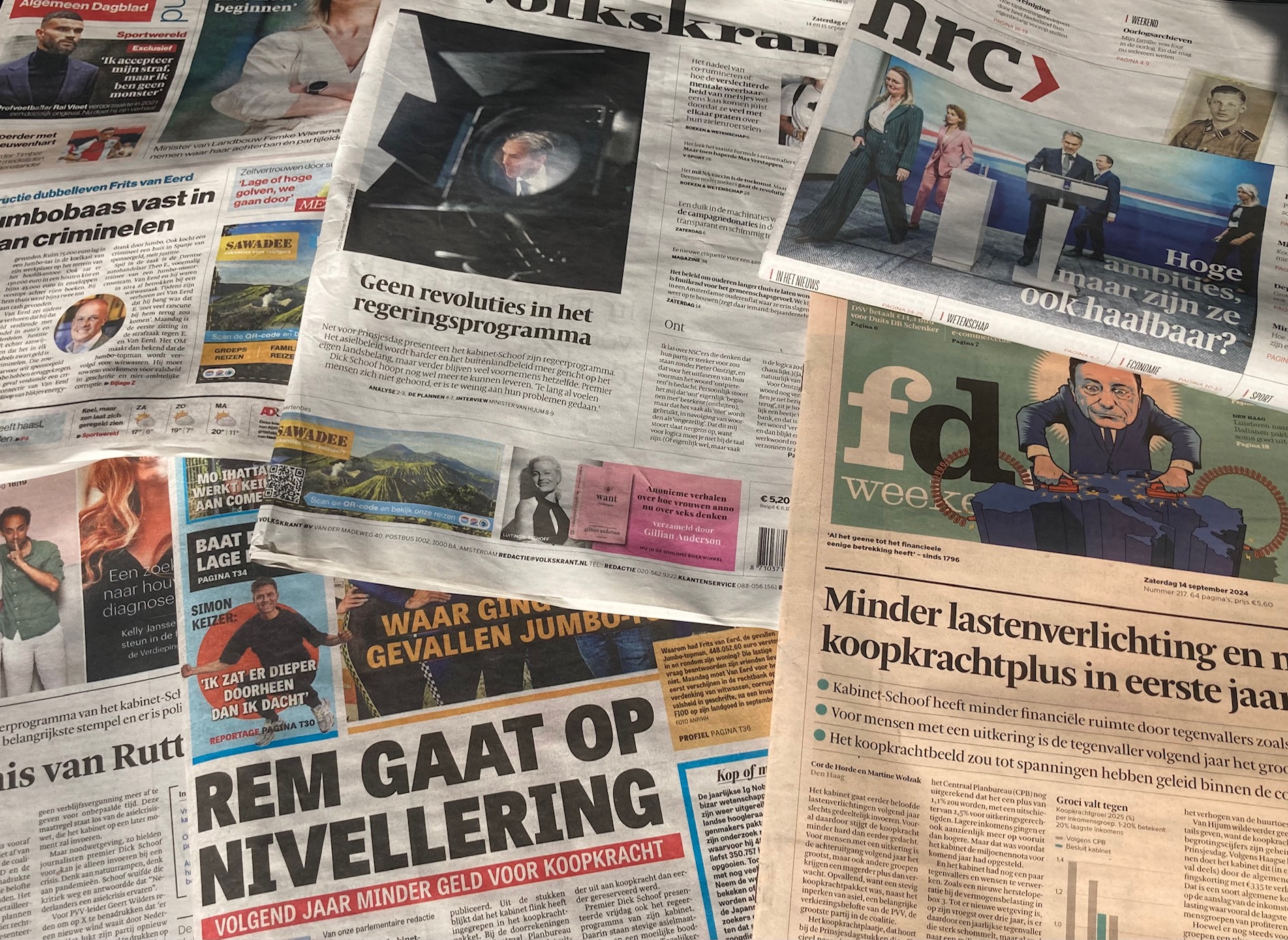Coalition plan is short on detail and new ideas: Dutch papers

The right-wing cabinet’s plans to bypass parliament and press ahead with the “toughest asylum regime ever” dominated coverage of the government’s 137-page coalition agreement on Friday.
But a day later, the newspapers are highlighting the lack of substance in the document as a whole, and asking just how realistic the new administration’s proposals – those which have been worked out in detail – actually are.
Trouw says on its front page that the new government has torn up Mark Rutte’s inheritance but that the agreement, dominated by the PVV, contains few surprises.
“By calling out a refugee crisis, the cabinet is saying ‘see you in court’,” the paper says in its analysis. Despite asylum minister Marjolein Faber’s assurances that her plan to sidestep the lower and upper houses of parliament is legal, the Council of State has to have its say, the paper points out. And that means checking the plan against Dutch, European and international law.
Two years ago, the then government looked at taking similar moves and was told no. Since then, the paper says, the situation has not worsened and may have even improved, given people are no longer sleeping outside. “Asylum lawyers are already sharpening their knives,” the paper said.
The AD, which barely mentions the agreement on its front page, points out that the government invoked emergency legislation during the coronavirus pandemic and many MPs were very critical, including the PVV and NSC leader Pieter Omtzigt.
“No matter how large the migration problems are, they are not life-threatening, as during the pandemic,” the paper said. “All Faber’s plans can count on a parliamentary majority. She does not need to worry about that. But the fact that these political parties accept they will be governed from without, shows all their protests about the rule of law and good governance during the pandemic to be worthless.”
Faber’s insistence that she can just declare a crisis and bypass parliament may be true legally, the Volkskrant said. “But the real question is ‘what sort of government do we have if it uses legislation to deal with war or other disasters to avoid normal democratic checks and balances, debate, international agreements, and legal controls’.”
“If it can happen once, it can happen again,” the paper warns. “And more often.”
The Financieele Dagblad points out that any tensions between the coalition parties and the ministers will appear next week during the debate on the cabinet’s 2025 spending plans on Wednesday and Thursday.
The first reaction from the NSC’s acting leader Nicolien van Vroonhoven, who has taken over from Pieter Omtzigt, was somewhat telling, the paper said. She praised the increase in spending power but issued a veiled warning about the asylum plans.
Divisions
“The coalition agreement belongs to the cabinet and not the parliamentary parties,” she said. “The cabinet will have to find majorities and we will carefully check all draft legislation on contents and the rule of law, as it is introduced.”
The Telegraaf highlights the impact of the plans on spending power and says the new cabinet has put the brakes on the previous administration’s efforts to reduce the gap between rich and poor.
It notes that the government’s macro-economic forecasting agency CPB had forecast a much greater increase in spending power than the 0.7% now on offer.
More than that, the paper says, the coalition agreement “barely contains anything concrete, and the real heavy work for the wobbly alliance between the PVV, VVD, NSC and BB has yet to come”.
Thank you for donating to DutchNews.nl.
We could not provide the Dutch News service, and keep it free of charge, without the generous support of our readers. Your donations allow us to report on issues you tell us matter, and provide you with a summary of the most important Dutch news each day.
Make a donation